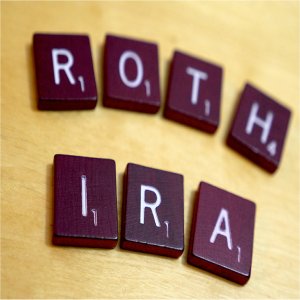Five Reasons Why Federal Employees Should Consider a Roth IRA. By: Ricardo Viader

Tax-free investment growth is not the only one.
There’s not a person in this world that wants to pay more in taxes. We should all want to pay our fair amount of taxes, but none of us want to leave a tip.
That’s why it’s critical to have a strong tax plan in retirement to ensure you can lawfully decrease your taxes as much as possible.
Different Tax Buckets
There are three main tax buckets one can have. Those are pay-as-you-go, pay-later, and pay-never.
The pay-as-you-go buckets can be non-retirement investments like a brokerage account. You pay taxes in these accounts when you get dividends or sell investments for a profit. One benefit of this bucket is that it may be subject to long-term capital gains tax rates, and they’re always lower than your regular tax rates. The disadvantage is that you must pay taxes as you go, and not only when you withdraw money from the account.
The pay-later bucket includes a traditional IRA, traditional Thrift Savings Plan (TSP) account, or traditional 401(k) savings account. Simply put, you get a tax deduction for placing money in this bucket, since it grows tax-deferred, and you don’t have to pay taxes on it until you withdraw it.
But, of the three tax buckets, the pay-never bucket is unquestionably our favorite. This bucket covers Roth IRAs, Roth TSPs, and Roth 401(k)s. In essence, you deposit after-tax money into this bucket, and it grows tax-free. Afterward, when you withdraw the money, both what you initially contributed and the growth may be taken out without paying any taxes.
If tax-free growth isn’t enough to persuade you to open a Roth IRA (or other Roth account), consider the following five advantages:
-
1. Steer Clear of Required Minimum Distributions
You must begin withdrawing funds from some types of retirement accounts at 72. For instance, if you have a traditional TSP or IRA, Required Minimum Distributions (RMDs) stipulate to withdraw a specific portion of the funds from these accounts each year—money that must be taxed.
A Roth IRA is the only form of retirement account that is not subject to RMDs. That implies that you may keep your money in a Roth IRA for as long as you want, and it will keep growing tax-free.
-
2. Make a Hedge Strategy Against Higher Taxes
It’s difficult to predict what changes may be made to the tax code in the future, but most people think that tax rates are unlikely to be reduced anytime soon. So, if taxes rise in the future, paying taxes now at a reduced rate (through a Roth account) can be an excellent strategy to decrease your tax burden in the long term.
-
3. Reduce Medicare Part B Premiums
Medicare is an essential component of retirement for most Americans, and Medicare Part B is not free. The cost of Medicare Part B rises in direct proportion to your income. That is, if your income exceeds specific limits, your rates will increase.
Money withdrawn from pre-tax accounts (traditional IRAs, traditional TSPs, and traditional 401(k)s, for instance) qualifies as taxable income when withdrawn. Thus withdrawing too much in one year may raise your premiums. Money withdrawn out of a Roth IRA, on the other hand, is not considered taxable income—having Roth money can help you save a lot in Medicare costs.
-
4. Minimize Taxes for Your Children
Having Roth money is beneficial not just to you but also to others to whom you leave money in your will. If you die and leave your children a traditional IRA, they’ll have to pay taxes on any withdrawals from the account. However, if you leave them a Roth IRA, they’ll be able to withdraw the funds tax and penalty-free.
-
5. You’ll Have Greater Financial Control
The last reason for having some after-tax money in retirement is to have additional retirement alternatives. After all, we can’t know what tax laws will look like in the future, but having money in several tax buckets will offer you some control over your taxable income during retirement.








